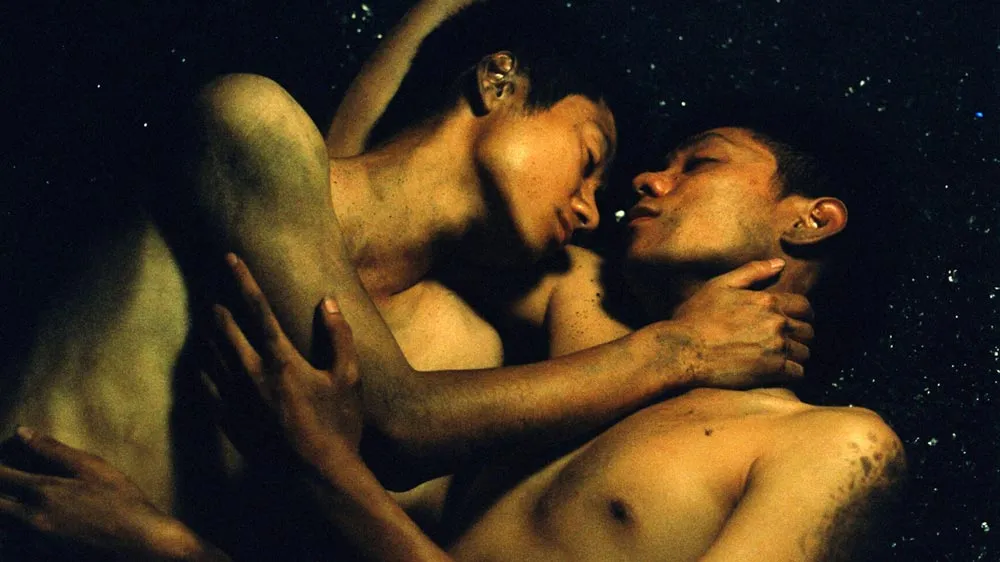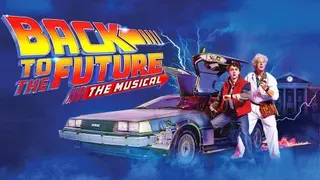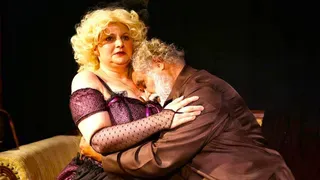September 19, 2014
Pride
Roger Walker-Dack READ TIME: 4 MIN.
In the summer of 1984, when London's annual Gay Pride was taking place, Mark Ashton, a young passionate activist (who eerily looked like Morrissey from The Smiths), decided that he wanted to form a Gay & Lesbian group to help support the country's distressed and embattled miners. U.K. Prime Minister Margaret Thatcher was determined to break the stronghold of the Unions, and so had deliberately confronted them with her aggressive and somewhat inhumane demands that left them with no option than to come out on strike to save their jobs and their very existence.
Mark's pleas to the burgeoning gay community fell mainly on deaf ears, as the vast majority were simply relieved that, for once, they were not the main targets of excessive police harassment. He did, however, manage to gather together a small handful of like-minded guys, and one lone lesbian. They were not all as extreme and politically savvy as him, and their numbers included a sweet 20-year-old closeted boy called Joe who still lived at home with middle-class parents in the suburbs.
The reluctance of the gay community in London to donate money was as strong as that of the mining community, who really did not want to take funds from a bunch of gay people. The two groups were polar opposites, and were essentially ignorant of each other. Then, as luck would have it, the Gay Support Group came across a one-street mining village in the heart of South Wales that had a union organizer who was prepared to think outside of the box. When Dai visited the Group in London, he was persuaded to make a speech from the stage of a gay club, and after his stirring words, the walls of Jericho started to come tumbling down, albeit slowly.
The group still had to get through their first visit to the Miners Social Club back in desolate Onllwyn. However, amongst all the fear, panic, distrust and loathing from these working class families, there were a handful of locals determined to treat these gay people who had given them so much with both respect and gratitude, not merely tolerated.
In the hands of acclaimed theatre director Matthew Warchus and actor-turned-writer Stephen Beresford, this true story has been fictionalized and made it into one of the most joyous, feel-good, quintessentially British comedies we have seen for a long time. By using broad humor with some great, outrageous one-liners, Beresford has taken the sting out of the double whammy of the tragic plight of the miners and the intolerance that the gay community suffered from all quarters in those days, and made us laugh out loud.
Some truly gifted performances make this movie the delight that it is. It will be hard to forget Imelda Staunton ('Vera Drake') as Hefina, the staunchest supporter of the gay group, as she screams out of the van window that she is 'off to Swansea for a massive lez off!' Bill Nighy ('Love Actually') for once underplays his role as the Miner's Club quiet, educated secretary, who has been harboring his own secret for years. Dominic West ('The Wire') dons a dreadful wig as Jonathan, an actor turned activist, to do a stunning disco dance to the envy of the some of the miners. And two of the younger leads are real scene stealers: George MacKay ('Defiance') as Joe, the student who is so empowered by this new experience he can finally leave home, and the equally talented Ben Schnetzer ('The Book Thief') as Mark, the passionate activist who wanted to make a big difference.
As it is set in Wales there is plenty of glorious singing and a wonderfully overly-dramatic soundtrack. Oh, yes, and plenty of beer, too. This heartstring-pulling movie has been orchestrated to ensure that when we are not in the aisles laughing, we will be grabbing for our Kleenex instead.
History sadly reminds us that events didn't turn out to well for either of the communities. Thatcher won in the end, the Strike collapsed, and the miners went back to work, only to face wholesale pit closures. And Beresford touches on the next battle that the gay community had to face, as 1984 also saw the early signs of AIDS epidemic in the UK.
In this highly emotional movie, however, there is a happy end, as the Miners keep an important promise to the gay community; as the final credits roll, the feel-good factor is what you remember most as you leave the theater.
If you love excellent Brit comedies such as "Kinky Boots" and "The Full Monty," or if you are intrigued in how the political acceptance of the UK gay community propelled forward as a result of their contribution to the plight of others, then you will love this movie. It's currently a smash hit in the UK, and looks likely to repeat that success in the U.S.
Roger Walker-Dack, a passionate cinephile, is a freelance writer, critic and broadcaster and the author/editor of three blogs. He divides his time between Miami Beach and Provincetown.







